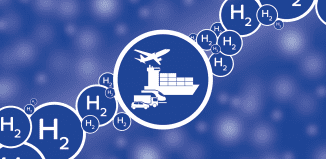Is Switching to Hydrogen Fuel More Harmful Than Good?
This post is also available in:  עברית (Hebrew)
עברית (Hebrew)
Recent research conducted by Princeton University and the National Oceanic and Atmospheric Association suggests that due to a chemical reaction in the lower atmosphere, hydrogen fuel might be more harmful to the environment than originally thought.
Hydrogen gas reacts readily in the atmosphere with the same molecule responsible for breaking down methane, which is a potent greenhouse gas. If the level of hydrogen emissions surpasses a specific threshold, this shared reaction is likely to result in an accumulation of methane in the atmosphere, leading to long-term climate consequences.
“Hydrogen is theoretically the fuel of the future,” said Matteo Bertagni, a postdoctoral researcher at the High Meadows Environmental Institute working on the Carbon Mitigation Initiative. “In practice, though, it poses many environmental and technological concerns that still need to be addressed.”
Bertagni is the first author of a research article published in Nature Communications, in which researchers modeled the effect of hydrogen emissions on atmospheric methane. They found that above a certain threshold, even when replacing fossil fuel usage, a leaky hydrogen economy could cause near-term environmental harm by increasing the amount of methane in the atmosphere.
“If you emit some hydrogen into the atmosphere now, it will lead to a progressive build-up of methane in the following years,” Bertagni said, according to scitechdaily.com. “Even though hydrogen only has a lifespan of around two years in the atmosphere, you’ll still have the methane feedback from that hydrogen in 30 years from now.”






























